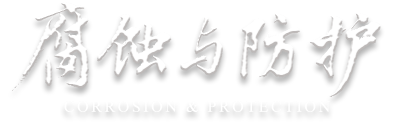氯盐侵蚀作用下纳米碳酸钙对海砂混凝土结合氯离子性能的影响
Effect of Nano-Calcium Carbonate on Chloride Binding Properties of Sea Sand Concrete under Chloride Corrosion
-
摘要: 考虑氯盐侵蚀时间和纳米碳酸钙(NC)的影响,研究了氯盐侵蚀作用下海砂混凝土结合氯离子性能。结果表明:随氯盐侵蚀时间增加,海砂混凝土中自由氯离子含量和结合氯离子含量均逐渐增加,掺入NC能够进一步提高海砂混凝土中结合氯离子含量;随氯盐侵蚀时间增加,海砂混凝土中Friedel's盐和水化硅酸钙(C-S-H)含量及C-S-H中钙硅物质的量比(Ca/Si比)逐渐提高;氯盐侵蚀14 d,掺NC海砂混凝土中Friedel's盐含量明显下降,其中掺1%NC使Friedel's盐含量减少最明显;海砂混凝土中掺入NC越多,C-S-H含量及C-S-H中Ca/Si比增大越明显,这有助于海砂混凝土中物理吸附氯离子。Abstract: The chloride binding properties of sea sand concrete subjected to chloride salt corrosion while taking into account the influence of chloride corrosion duration and nano-calcium carbonate (NC) were studied. The results show that with the increase of chloride corrosion time, the content of free chloride ion and bound chloride ion in sea sand concrete increased gradually. The incorporation of NC could further improve the content of bound chloride ion in sea sand concrete. The content of Friedel's salt and hydrated calcium silicate (C-S-H) in sea sand concrete and the Ca and Si amount of substance ratio in C-S-H increased with the increase of chloride attack time. The content of Friedel's salt in NC sea sand concrete decreased significantly after 14 days of chloride erosion, and the decrease of Friedel's salt content was the most obvious when 1% NC was added. The more NC was incorporated into sea sand concrete, the more obvious the increase of C-S-H content and Ca and Si amount of substance ratio in C-S-H was, which was helpful for the physical adsorption of chloride ions in sea sand concrete.

 下载:
下载: